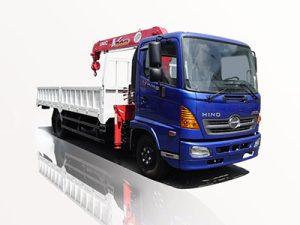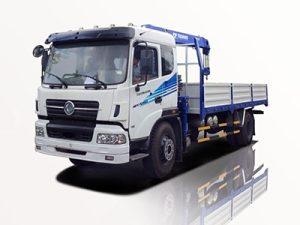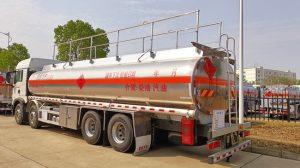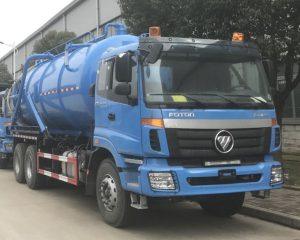Monday to Saturday - 8:00 -17:30
Everything You Need to Know About a 6 Ton Truck
When it comes to transporting goods, choosing the right vehicle is crucial. A 6 ton truck is an excellent option for medium to large loads, balancing capacity and maneuverability. In this comprehensive article, we will delve into everything related to 6 ton trucks, including their types, uses, features, and maintenance tips. Whether you are in logistics, construction, or simply need a reliable truck for personal use, this guide will provide valuable insights.
Understanding 6 Ton Trucks
What is a 6 Ton Truck?
A 6 ton truck refers to a vehicle that can carry a maximum load of approximately 6 metric tons or about 13,200 pounds. These trucks come in various configurations, including box trucks, flatbeds, and pick-ups. Their capacity makes them suitable for a wide range of applications, from transporting goods to serving as delivery vehicles.
Common Types of 6 Ton Trucks
- Box Trucks: Enclosed trucks ideal for transporting furniture or sensitive cargo.
- Flatbed Trucks: Open trucks perfect for carrying oversized loads or equipment.
- Refrigerated Trucks: Designed for transporting perishable goods.
- Pickup Trucks: Versatile vehicles often used for personal and commercial purposes.
Key Features of 6 Ton Trucks
Engine and Performance
6 ton trucks typically come with robust engines designed to handle heavy loads. Most models feature turbocharged diesel engines that provide high torque at low RPMs. This is essential for both performance and fuel efficiency.
Fuel Efficiency
While larger trucks often consume more fuel, advancements in technology have led to more fuel-efficient models. A standard 6 ton truck can achieve anywhere from 8 to 12 miles per gallon, depending on the make and model, driving conditions, and load carried.
Cargo Space
| Type of Truck | Cargo Space (in cubic feet) |
|---|---|
| Box Truck | 500-800 |
| Flatbed Truck | 300-600 |
| Refrigerated Truck | 400-700 |
Weight & Payload Capacity
The payload capacity of a 6 ton truck generally ranges between 3,000 to 4,500 kg. It is essential to know your vehicle’s limit to avoid overloading, which can lead to safety issues and mechanical failure.
Importance of Payload Management
Proper payload management is crucial for safety and efficiency. Keeping within the recommended limits ensures better handling and reduces the risk of accidents. Additionally, maintaining a balanced load prevents excessive wear on the vehicle’s tires and suspension system.
Applications of 6 Ton Trucks
Construction and Building
In the construction industry, 6 ton trucks are essential for transporting materials such as bricks, cement, and machinery. Their versatility allows them to navigate urban environments while carrying substantial loads.
Logistics and Freight
Many logistics companies favor 6 ton trucks for their balance of size and capacity. They are often used to deliver goods between warehouses and retail locations, making them an integral part of the supply chain.
Moving and Storage
For moving companies, 6 ton trucks provide the perfect solution for residential and commercial moving. Their ample cargo space can accommodate the belongings of small to medium-sized homes.
Food and Beverage Industries
Refrigerated versions of 6 ton trucks are vital for the food and beverage industry. They maintain appropriate temperatures for perishable items during transport, ensuring freshness upon arrival.
Buying a 6 Ton Truck
New vs. Used Trucks
When considering the purchase of a 6 ton truck, you have the option of buying new or used. New trucks typically come with warranties and the latest technology, while used trucks can offer significant savings. Always consider your budget, intended use, and the condition of the vehicle.
What to Look For
- Mileage: Check the mileage to ensure the truck hasn’t been overused.
- Condition of Tires: Worn tires can indicate poor maintenance.
- History Report: A vehicle history report will provide information on previous accidents or repairs.
Financing Options
Financing a 6 ton truck can be done through various methods, including loans from banks, credit unions, and dealer financing options. Compare interest rates and terms to find the best deal for your situation.
Maintaining Your 6 Ton Truck
Regular Maintenance Checklist
| Maintenance Task | Frequency |
|---|---|
| Oil Change | Every 5,000 miles |
| Tire Rotation | Every 6,000 miles |
| Brake Inspection | Every 10,000 miles |
Common Repairs
Due to their heavy usage, 6 ton trucks may encounter specific common issues, including brake wear, tire wear, and engine problems. Keeping up with regular maintenance can help prevent many of these problems.
Winter and Summer Preparations
Depending on the season, specific preparations are necessary to ensure your 6 ton truck remains in peak condition:
- Winter: Ensure your antifreeze levels are appropriate and switch to winter tires if in a cold climate.
- Summer: Check coolant levels and inspect air conditioning functionality.
Insurance and Regulations
Types of Insurance for 6 Ton Trucks
Insurance for commercial vehicles varies widely, but some essential types include:
- Liability Insurance: Covers damages to other vehicles and property if you are at fault.
- Collision Insurance: Pays for damage to your truck after an accident.
- Comprehensive Insurance: Covers non-collision-related incidents, such as theft and natural disasters.
Understanding Regulations
The operation of a 6 ton truck is subject to local and federal regulations. This includes weight limits, safety inspections, and licensure. Familiarize yourself with regulations in your area to ensure compliance.
Cost Considerations of Owning a 6 Ton Truck
Initial Purchase Cost
The price of a 6 ton truck can range widely based on make, model, and condition. New trucks typically start around $30,000, while used ones can range from $10,000 to $25,000 depending on age and mileage.
Ongoing Expenses
Owning a 6 ton truck also involves ongoing expenses such as fuel, maintenance, insurance, and registration fees. It’s essential to create a budget that accounts for these costs to understand the total financial commitment involved.
Depreciation
Like any vehicle, 6 ton trucks will depreciate over time. Understanding the depreciation rates can help you make informed decisions when selling or trading in your truck.
FAQ Section
1. How much weight can a 6 ton truck carry?
A 6 ton truck can typically carry a maximum payload of around 3,000 to 4,500 kg (6,600 to 10,000 lbs). Always check the specific vehicle’s manual for actual limits.
2. What are the benefits of using a 6 ton truck for deliveries?
6 ton trucks offer a good balance of capacity and versatility, making them ideal for urban deliveries. They can navigate narrow streets while carrying significant loads, which can improve delivery efficiency.
3. What should I consider when buying a used 6 ton truck?
Look for mileage, maintenance history, overall condition, tire wear, and whether the truck has been involved in any accidents.
4. How often should I maintain my 6 ton truck?
Perform regular maintenance as per your vehicle’s manual, including oil changes every 5,000 miles, tire rotations every 6,000 miles, and brake inspections every 10,000 miles.
5. Can I drive a 6 ton truck with a standard driver’s license?
In many regions, a standard driver’s license is sufficient to operate a 6 ton truck. However, check local regulations, as requirements can vary.
6. What are the best brands for 6 ton trucks?
Popular brands include Ford, Isuzu, Hino, and Mercedes-Benz. Each offers various models with different features suited for different needs.








